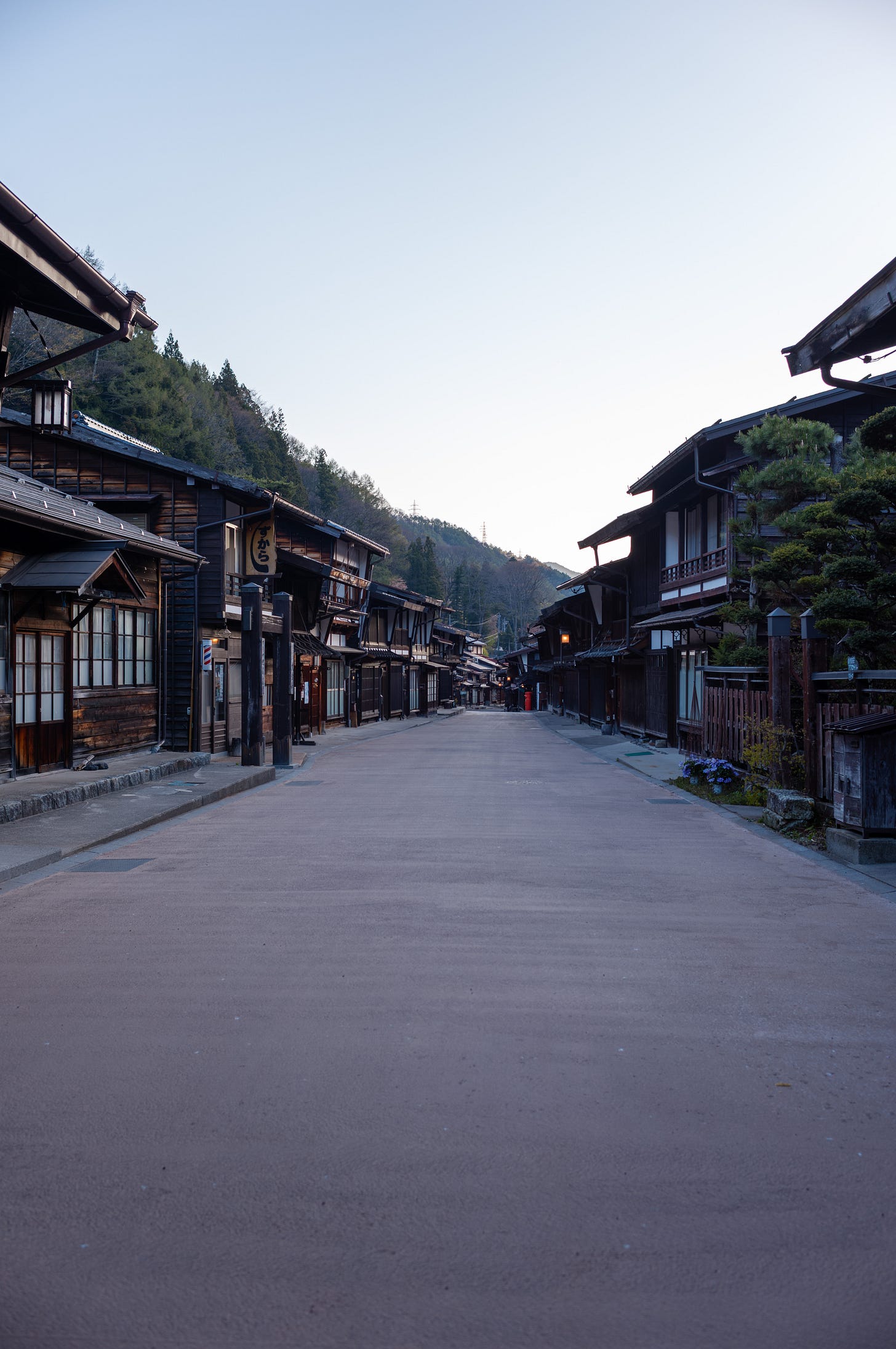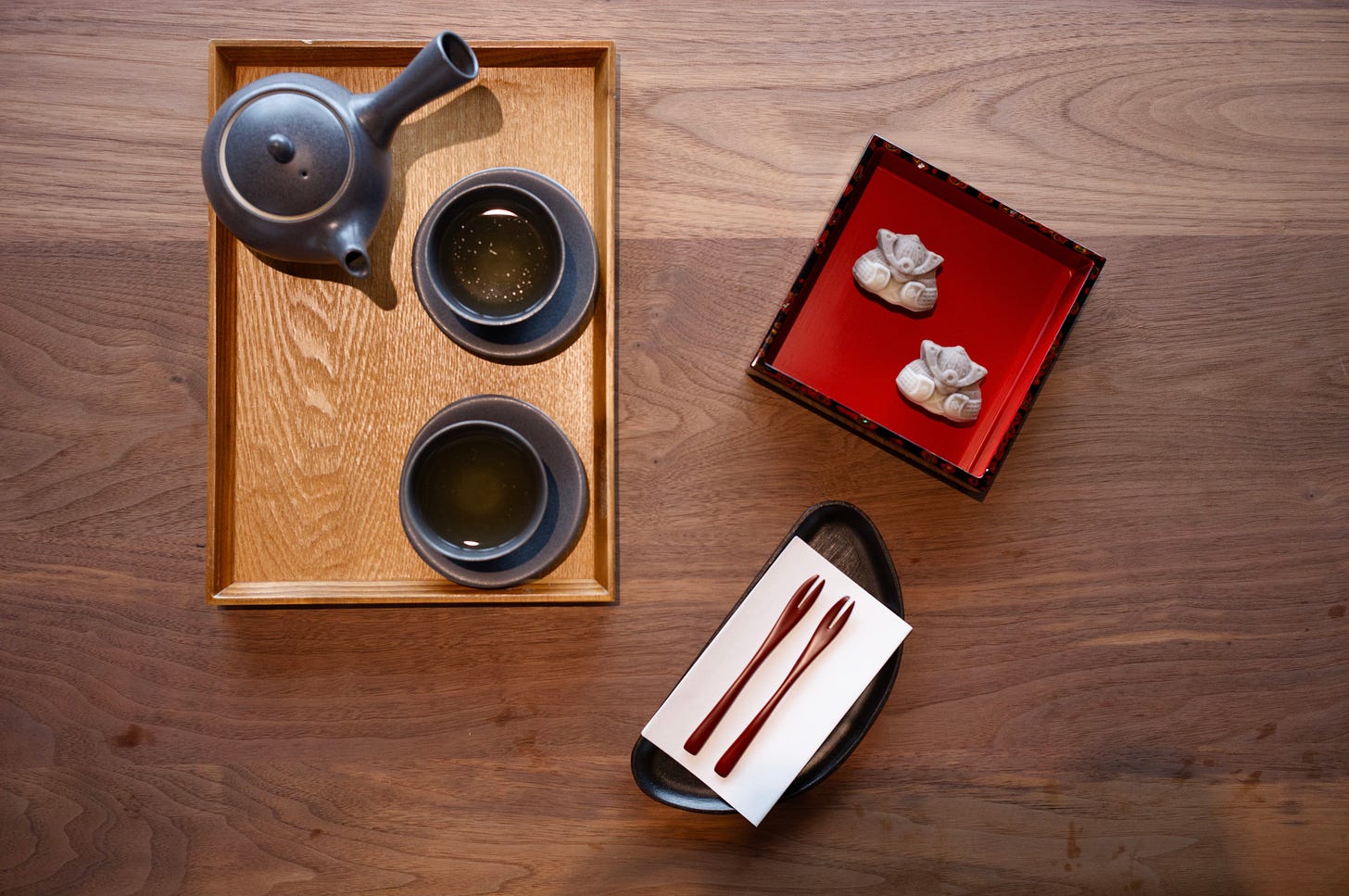On the train to Narai, I looked out the window. The audiobook I was listening to was talking about the little things in life—how precious they are, how we must become more aware of them instead of always chasing grandeur. Mountains rose on both sides of the tracks, glowing in different shades of green, with the occasional splash of a purple-blossomed tree. The landscape created a soft, textured image that made my fingers tingle. I imagined brushing my palm over it and was sure it would feel gentle—even though I know pine trees are anything but. But from a distance, standing close together, they looked like something a giant could sleep in.
I was overwhelmed with awe and gratitude, realizing again that this dream of mine had become a reality. Tears pricked at my eyes. If I hadn’t taken a shaky breath, I’m sure I would have cried. Nature sometimes does that to me. It reminds me how small I am in the grand scheme of things—how small my worries really are. I become overtaken by warmth and wonder. When I looked over at my husband, I laughed. He was fast asleep, his mouth wide open. He had no idea about the emotional journey I had just gone through. We sat right next to each other, yet we were each rooted in our own little world. Kind of nice, in a way.
After a three-hour hike, we walked through an old street in Narai. Beautiful houses lined the path in hues of dark brown and black. It felt like stepping into another time. Our eyes darted left, then right, then left again, trying to take it all in. A small storefront with prints and postcards caught our attention. I was looking for artwork for our home and had read about the special paper from this region. I entered the store alone and quickly found too many prints I liked. My husband joined me and we agreed on one. But no one was around. After looking a bit, I found a bell and rang it. A voice called out from another room:
“待ってください!” she shouted. Please wait.
So we did.
A few minutes later, an elderly woman came through a door I hadn’t even noticed. She started speaking rapid Japanese. Every time that happens, I get stage fright. All the words I’ve ever learned vanish, and all I can manage is, “すみません、わかりません。” Sorry, I don’t understand.
Ironically, that often convinces people I do understand—how else could I answer in perfect Japanese?
She explained that we could pick a free postcard, which thankfully we already knew thanks to a sign in English. We chose one, and she asked where we were from. That much I understood. I answered—in Japanese—which she took as a cue to launch into full conversation. She explained that her friend had made the print we were buying, coloring it using natural dyes from persimmon. I don’t know how, but my husband and I managed to communicate with her. She spoke slowly, used hand gestures, broken English, and even a few German words.
It felt like we spent days with her, talking about Japan, the prints, and Germany. In reality, it was probably less than ten minutes, but the encounter was so pure and heartfelt that it weighed on me—in a good way.
After we paid, she again said, “待ってください,” and disappeared through one door only to emerge from another. She rummaged through some drawers and handed us sweets—traditional Japanese hard candy. She taught us its name and how to say goodbye properly. My cheeks hurt from smiling. I glanced at my husband, and I could tell he felt the same. We bowed our thanks and farewells, and walked away from the shop—him clutching our new print, me clutching my heart.
“This has been the best moment of my life,” I whispered.
“She was the sweetest,” he agreed.
Living a slow life seems easier in Japan. Even when I’m walking through Tokyo’s busy streets, I’m always followed by this calmness that took root in my innermost depths months ago. Maybe it’s the temples that seem to have sprung up like weeds in places you'd never expect. Every time I come across one, it’s a pleasant surprise—a reminder that quiet places exist even in the busiest areas. Maybe it’s the parks, with their lush, vibrant lawns, perfectly trimmed trees and bushes, inviting you to spend hours on benches in the shade. Or maybe it’s the tone of voice many people use—never too loud, never too much.
I wonder how much I miss when I’m home.
Maybe slowing down doesn’t always mean changing your pace—it’s about noticing what’s already here.
Thank you for reading. またね.







Such a delight reading this, Martina! Thank you for sharing this lovely adventure of beauty and solace.
✨️🌿✨️
Such a beautiful writing and overall experience . I loved all of your japanese letters and they almost always make me tear up a bit , your emotions and love for the place really come through the words 🥹🥰❤️